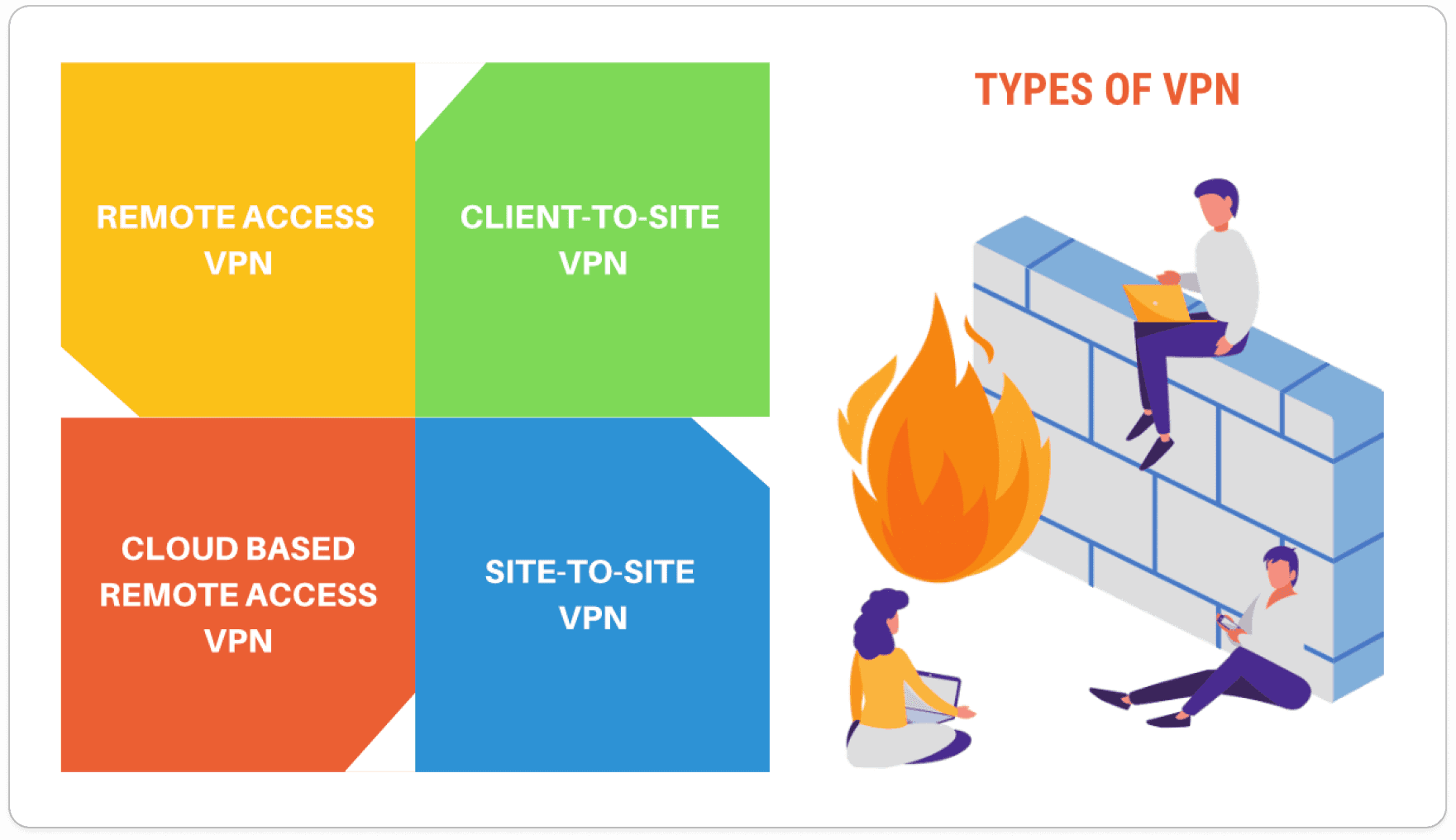In the modern era, VPNs are essential and play a vital role in cybersecurity. VPNs (Virtual Private Networks) establish secure, encrypted connections between your device and the internet, protecting your data from cyber threats and ensuring privacy. They prevent unauthorized access to sensitive information, safeguard against hackers, and allow users to bypass geographic restrictions and censorship. By masking IP addresses and encrypting data transmissions, VPNs enhance security for both individuals and organizations, making them indispensable in the modern cybersecurity landscape.
Types of VPNs
There are different types of VPNs available in the market. Based on their functionality, here are a few types.

Remote Access VPN:
Connects individual users to a remote server or network from any location over the internet. It’s commonly used by employees to access their company’s network securely from remote locations.
Cloud Based Remote Access VPN:
A Cloud VPN (Virtual Private Network) is a service that offers secure, encrypted connections between an organization's on-premises network and its resources in the cloud, or between different cloud environments. It leverages cloud infrastructure to ensure secure communication, protecting data transmitted over the internet from unauthorized access and cyber threats.
Client-to-Site VPN:
Allows individual devices to securely connect to a company’s network remotely. Typically involves a VPN client application on the user's device.
Site-to-Site VPN:
Links multiple networks over the internet, facilitating communication between devices on different networks as though they are on the same local network. Often used to connect data centers or branch offices.
Happy Learning !!


